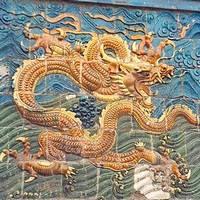China’s astounding record of economic growth is shifting the global balance of power and, as a result, creating a new international environment in which Beijing faces enormous pressure from the West to play a constructive role on the world stage. Often, the U.S. and China stand on opposite sides of disputes involving third nations, prompting a curious diplomatic dance -- one that will become a more prominent feature of international diplomacy in the years to come.
Once an impoverished, inward-facing country, China has become a major trading partner to nations across the globe and a key force in world affairs, whether Beijing wants to play such a role or not. Combined with the rise of trade sanctions and other economic tools as the preferred instruments of global diplomacy, China's economic muscle has given it the power to bolster -- or block -- Western initiatives.
As a result, Beijing has become a key player in the major diplomatic dramas of our time, often at odds with the U.S. and the West, and frequently on the wrong side of human rights issues, its least favorite topic. And the diplomatic interplay between Washington and Beijing on issues of global concern has been gradually rising in importance. Recently, the U.S. has urgently needed China's help on Iran, Syria and North Korea, to name just a few cases.

